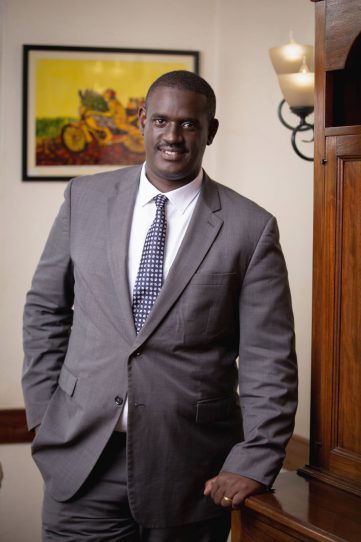The unstoppable journey to first oil commenced after the companies took FID (Financial Investment Decision) in 2022.
What should we then expect om 2023? Uganda, has since colonial times, drilled a total of 120 oil and gas wells, in addition to making 21 oil and gas discoveries. We have seen the oil underground and it is now time to extract and commercialize it.
So, over the next two years we expect a drilling programme to extract this oil. We expect to see over 400 oil wells being drilled in Uganda. The drilling exercise at the Kingfisher will start in a few weeks and shortly thereafter the drilling at Tilenga will also commence. That is something to look forward to this year. The process of production of Uganda’s crude oil is starting. This is the time when promises on thin paper must be translated to thick action. With that said, we must make sure that the development of the oil fields is done strictly in compliance with the Environmental and Social safeguards set out in the various environmental reports.
This calls for proper vigilance from the regulators and the project companies like Total Energies, CNOOC and UNOC. Fortunately, we have some of the most experienced companies in the world to deliver on this mammoth and important undertaking.
We have also seen an announcement by Uganda’s Cabinet approving the licensing of two oil blocks; the Kasurubani license to the Uganda National Oil Company and the Turaco license to DGR Energy. This is Uganda’s second successful competitive licensing round.
It is clear that this year has started in full gear. The oil industry brings opportunity knocking on the doors of our countrymen and women. There are those who only see calamity in this opportunity. We must hear them and, where their warnings are sound, we must ensure we protect the people, environment and bio diversity without stopping development.
We also expect a rise in some negative statements, articles and meetings in the next few weeks, from the international NGO lobby and their local satellites. This is because of a case filed in the High Court in Paris where some international NGOs are asking to court in Paris to exercise judicial supervision over Ugandan natural resources. It will be decided by the end of February. Last year the activists publically approached French President. This year they will try their luck in the courts of Paris. As we await the decision of the Paris Court we expect attempts to pressurize the court by use of a media campaign, anti EACOP reports repeating the same tired falsehoods and events – all organised in Paris. We expect some of the local satellites to be in Paris on French TV explaining how bad the project is.
We also expect and hope for an end to the brutal war in Ukraine. War is ugly and the war in Ukraine has led to death, destruction and displacement. We have also seen a massive rise in fuel prices as a result of this brutal and senseless war. We have learnt through painful experience that high oil prices hit the poorest the hardest. For every cent that is added on to the cost of oil has serious effects on the life of poorer people. We now know that rising oil prices lead to inflation which is a terrible tax on poverty. Those pushing for phasing out of fossils, by making them scarce and unaffordable, are pushing for a transition to be paid for by the poorest in society. We also know that high oil prices do not hurt oil companies. 2022 saw oil companies profit greatly from a high oil price. As we move to transition from fossil fuels, a just transition must not be paid for by the poorest people on earth. It can be argued that climate change too hits the poorest the hardest. So the question is which blow should the poor take; of deeper poverty or climate impacts? This is obviously a false choice. The only reason the poor are hit harder by climate is because they don’t have the resources to mitigate against climate change. More Chinese died of hunger or drought or floods in the 1950s than the Chinese displaced by climate effects now. Why? China can now afford to protect its people from climate disasters. Poverty has never been a shelter against bad weather. Any serious conversation about climate emergency must consider eradication of poverty and fair access to energy. On this page, we intend to do just that.


